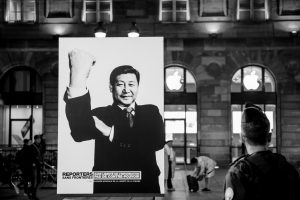Yesterday, the watchdog group Reporters Without Borders (RSF) released its latest annual round-up of threats facing the world’s journalists. The report contained an alarming finding: 533 media workers are currently detained worldwide, the highest ever recorded by RSF.
According to the Paris-based organization, this represented a 13.4 percent rise in the number of journalists in detention last year, which was also a record at the time.
“RSF has never previously registered such a high number of imprisoned journalists,” the report stated. “This latest increase in the number of detained journalists… confirms that authoritarian regimes are becoming more and more comfortable with jailing the journalists who bother them, in most cases without even putting them on trial.”
The report, which found that 57 were killed in the line of duty in 2022, while 65 journalists are being held hostage and 49 are missing, also identified that Asian nations are among the worst jailers of journalists in the world.
Of the world’s top five enemies of the press, three are in Asia. The top place is occupied by China, which as of December 22, had 110 journalists in detention – more than a fifth of the world’s total – including 11 in Hong Kong. While this fell slightly from the total recorded last year, it reflected a media landscape of “unrelenting oppression, ever-growing censorship, and far-reaching surveillance.”
It was followed by Myanmar, where RSF identified 62 journalists in prison, which in terms of population size, made it “by far the world’s biggest jailer of journalists.” This total reflects the sharp repressive turn since last year’s coup, which at a stroke abrogated the opening and diversification of the media that took place over the course of the 2010s. Where in 2021, most journalists were detained while covering anti-junta protests, this year “was marked by an increase in arrests of journalists in their homes or in the places where they had gone into hiding to escape the repressive machinery deployed by the Tatmadaw.”
Coming in fourth place was Vietnam, which currently has 39 media workers in prison, according to RSF. Relative to population, this is a larger number than in China. This reflects a considerable tightening of the political space by the ruling Vietnamese Communist Party, which has continued its efforts “to crush the independent media.” According to RSF, “the number of imprisoned journalists has virtually doubled in the space of five years.”
The high representation of Asian governments among the ranks of those hostile to the press reflects the increasingly non-democratic nature of many of the region’s governments, as identified in the various global indexes on political freedom. Both also suggest a growing degree of confidence on the part of these governments to act without hesitation to quell dissenting voices, as the world drifts further from the unipolar moment of the 1990s.
While the power of the United States was unable to magically instantiate democratic politics including a free and independent press, it at least set a rough standard and led nations to think twice about taking harsh measures to crackdown. The coming multi-polar world seems set to be a much more inhospitable terrain for press workers.

































